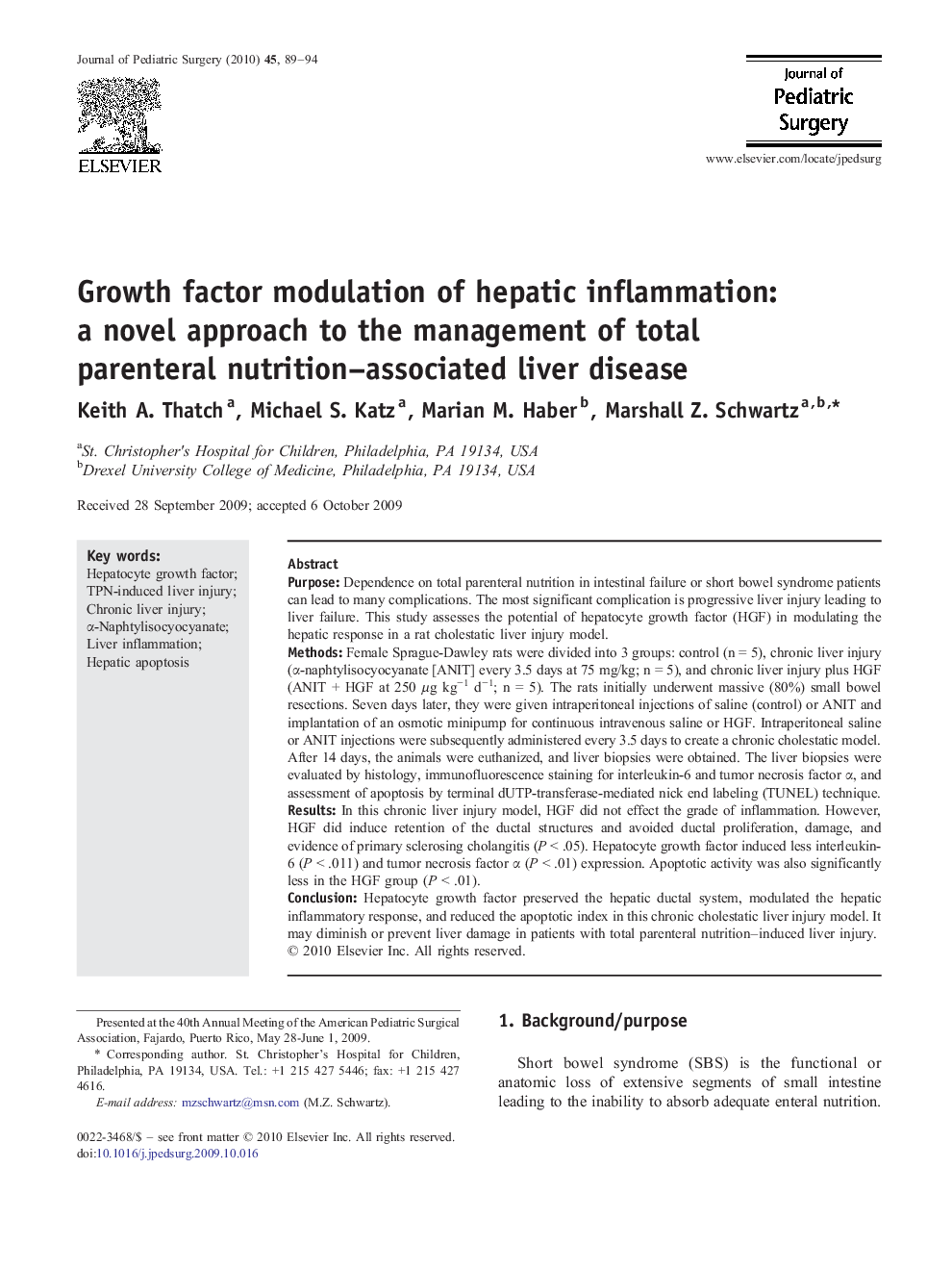| Article ID | Journal | Published Year | Pages | File Type |
|---|---|---|---|---|
| 4158798 | Journal of Pediatric Surgery | 2010 | 6 Pages |
PurposeDependence on total parenteral nutrition in intestinal failure or short bowel syndrome patients can lead to many complications. The most significant complication is progressive liver injury leading to liver failure. This study assesses the potential of hepatocyte growth factor (HGF) in modulating the hepatic response in a rat cholestatic liver injury model.MethodsFemale Sprague-Dawley rats were divided into 3 groups: control (n = 5), chronic liver injury (α-naphtylisocyocyanate [ANIT] every 3.5 days at 75 mg/kg; n = 5), and chronic liver injury plus HGF (ANIT + HGF at 250 μg kg−1 d−1; n = 5). The rats initially underwent massive (80%) small bowel resections. Seven days later, they were given intraperitoneal injections of saline (control) or ANIT and implantation of an osmotic minipump for continuous intravenous saline or HGF. Intraperitoneal saline or ANIT injections were subsequently administered every 3.5 days to create a chronic cholestatic model. After 14 days, the animals were euthanized, and liver biopsies were obtained. The liver biopsies were evaluated by histology, immunofluorescence staining for interleukin-6 and tumor necrosis factor α, and assessment of apoptosis by terminal dUTP-transferase-mediated nick end labeling (TUNEL) technique.ResultsIn this chronic liver injury model, HGF did not effect the grade of inflammation. However, HGF did induce retention of the ductal structures and avoided ductal proliferation, damage, and evidence of primary sclerosing cholangitis (P < .05). Hepatocyte growth factor induced less interleukin-6 (P < .011) and tumor necrosis factor α (P < .01) expression. Apoptotic activity was also significantly less in the HGF group (P < .01).ConclusionHepatocyte growth factor preserved the hepatic ductal system, modulated the hepatic inflammatory response, and reduced the apoptotic index in this chronic cholestatic liver injury model. It may diminish or prevent liver damage in patients with total parenteral nutrition–induced liver injury.
